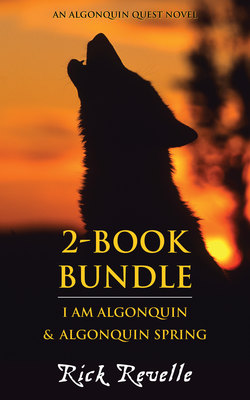Читать книгу Algonquin Quest 2-Book Bundle - Rick Revelle - Страница 19
На сайте Литреса книга снята с продажи.
14
ОглавлениеThe Aftermath
AFTER THE BATTLE WITH the Hochelagans, we sent hunters out to find game. They did not disappoint us, and came back with a moose and a deer.
We feasted, drummed, and danced for many days with our allies from the battle that had stayed to share in the celebrations.
The survivors of the Ottaguttaouernin village told us what they had suffered at the hands of their attackers. All their men had been killed, except for the three who had been rescued with the women and children. The Hochelagan captives were subjected to burning sticks and hot embers upon their bodies. Using clamshells we cut off their fingers to prolong their agony. If a warrior lost his fingers he couldn’t draw a bow, hold a knife, or paddle a canoe.
The chief who had led the war party here was made to run the gauntlet. All the women and children of the raided village, our allies, and my family group lined up on two sides. We spread burning coals on the ground and stripped the chief naked. As he stood at the entrance to the gauntlet he sang his death song. When he was done singing, he started his run. Everyone in the line had sticks and clubs. As the man ran on the coals he was struck repeatedly by all the tribal members in line. The Hochelagan was a brave man. Not once did he cry out in pain. When he reached the end of the line he was bloodied from cuts and his feet were seared from the coals. We then gave him to the women, who took him and finished the job of torturing him until he died.
The women cut out his heart at the end, and it was given to the man who had captured him. The people then decided that the other six captives would also run the gauntlet. If they survived, we would then give them one canoe with two paddles and let them leave. Five of the Hochelagans survived. Very few of them had any fingers left and they all had been beaten and burned. The women cauterized their wounds, and then they took them down to the river, put them in a canoe, and shoved off. With few fingers on their hands to paddle, they would probably die on the river. If they didn’t die and they did make it back to their village in Hochelagan they would likely starve to death, unless their relatives took pity on them and fed them. With few or no fingers they wouldn’t be able to hunt or defend the village. They would become a burden to their people. It doesn’t matter how good a warrior or hunter you were, if you ceased to be a person who could contribute to the well being of the village anymore, you were shunned. Everyone had to participate in the survival of the tribe. There are no idlers allowed. If somehow these men could make it back to where they were from and could help with the general welfare of the camp, they would survive. However, these men would still be considered outcasts. They came back as failed warriors. No fingers, no captives, no spoils of war and the loss of over thirty warriors in the land of the Omàmiwinini, branded as pariahs forever.
Failures like that would bring death and destruction on their village. No village could survive for long if it lost that many hunters and warriors. For a camp to survive the men had to be able to hunt. This was a bad omen to the conquered. It would be a long time before the Hochelagans would try to come to our lands again to make war.
In the course of the next few days Minowez-I, Pangì Shìshìb, and Ajowà Okiwan left with their warriors. Before they left, I told them there would be news about one of my family members in the next moon, when all the Algonquin tribes gathered for the summer meetings. With that I sent Makòns and Miskwì to bring back our women, children, and elders. Hopefully we would have peace for the summer and all would be safe.
